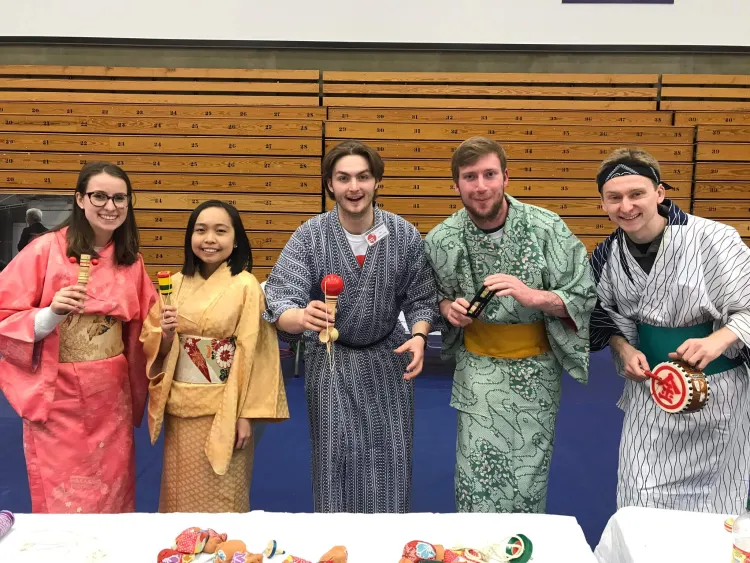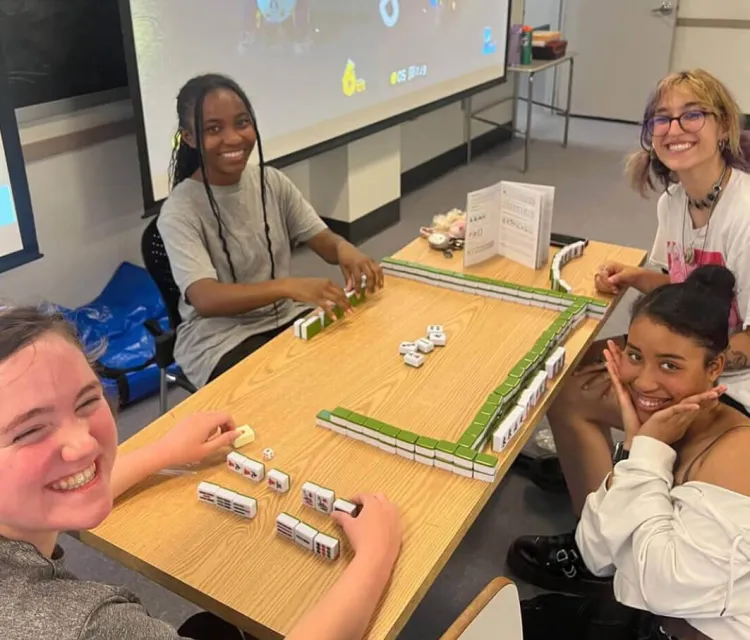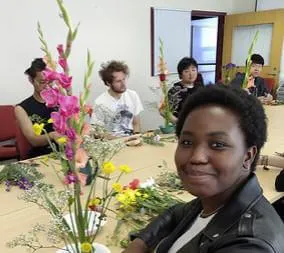The Japanese Language Program at the University of Vermont offers a dynamic and supportive environment for students to develop their linguistic and cultural fluency. Our program emphasizes a holistic approach to language learning, combining engaging classroom instruction designed to accommodate a variety of learning levels and interests with rich extracurricular opportunities. Students can participate in cultural events, conversation tables, service learning, language exchange, collaborative online international learning, extensive reading, and study abroad programs. They may also join official clubs such as the Japanese Language and Culture Club, the Yamaneko Taiko (Japanese drumming) Club, and the Anime Club. In addition to the Japanese language courses, students can explore a broad range of classes that delve into Japanese history, literature, politics, art, and society. This interdisciplinary approach provides a comprehensive understanding of Japan and its global connections, preparing students for careers in academia, international business, government, and more. Discover the world of Japan through our program and join a community passionate about Japan and connection!

Learning Communities

The UVM Japanese Program offers many opportunities to learn and practice Japanese language skills and to engage in a welcoming learning community. Opportunities include study abroad, language-exchange programs, service-learning projects, Collaborative Online International Learning with university students in Japan, tutoring sessions, Japanese Language Table, cultural activities, and interest clubs such as the Yamaneko Taiko (Japanese drumming) Club, Japanese Language and Culture Club. There are other clubs organized by students such as Anime Club and Kendama Club. Students are welcome to create new clubs according to their interests.
Beyond the Classroom

Students participating in an Ikebana (Japanese style of flower arrangement) workshop, presented by Toshi Saitoh from the Japan-America Society of Vermont. Students in UVM Japanese Program enjoy many other on-campus activities such as community meals, calligraphy, and celebrating traditional Japanese holidays and festivals. They also have opportunities to volunteer and enjoy off-campus activities including Service-Learning projects at local schools and cultural events including Matsuri festival offered by the Japan-America Society of Vermont.